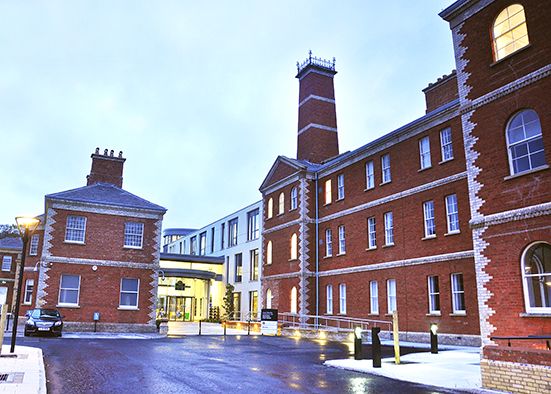3-year wait to clear planning backlog fears
3-year wait to clear planning backlog fears
24 January 2024

A WARNING has been issued that it could take over three years to clear the district’s planning backlog.
Shock new figures have revealed there are currently 1,606 live applications in the system with the delay in processing them a major concern for ratepayers, architects and developers waiting on decisions.
One developer has this week revealed he is waiting on planners to determine several applications worth a combined investment of £500,000 and explained that if decisions are not made soon, he may have to lay off staff.
Confirmation of the staggering backlog came at last week’s meeting of Newry, Mourne and Down Council’s Strategy, Policy and Resources Committee.
Council officials have confirmed that of the 1,606 applications, nearly 41% are awaiting to be allocated with a further 5% new applications awaiting to be validated.
Papers published in advance of last week’s meeting revealed that processing times for applications lodged between April and September last year was 421 weeks.
Processing times for local applications for the same period are above the Northern Ireland target, with Newry, Mourne and Down receiving the highest number of planning applications outside Belfast.
In the last quarter, eight of the province’s 11 councils received less applications than the previous quarter, with Newry, Mourne and Down reporting an increase. In addition to the huge number of applications, local planners are also dealing with staffing issues.
Since the start of last year, a significant number of staff have left the local authority which has resulted in 11 planning vacancies in the planning team which, when fully staffed, has 39, excluding admin staff.
It is hoped that as staff are trained, 39 planners will be in post within the next two months when the number of applications that are able to be processed will improve, but no definite timescale is available.
Downpatrick councillor Gareth Sharvin, who is the council’s vice-chairman, has raised “serious concerns” in relation to the processing time for new planning applications.
He said he’s receiving calls from applicants, agents, architects and builders in relation to the delay.
“I’m aware of a case involving a planning agent who had to reissue cheques to planners six months after the originals were submitted because they had expired,” Cllr Sharvin revealed.
“In addition, a local builder has informed me that he has over £500,000 worth of work in the planning system waiting to be allocated, but with current contracts finishing up and no sign of planning approval, he may have to let workers go.”
Cllr Sharvin has also expressed concern at the “seriously potential impact” the planning delay will have on the local economy and on communities.
“Given the challenges around some applications not being of a good enough standard which can cause delays in processing them, can the council not create a template that provides helpful guidance which it can share with architects, planning agents and applicants?” he asked.
“It is vitality important that we get this sorted as quickly as possible to get Newry, Mourne and Down moving again. We need the improvements to have a positive impact quickly and the number of unallocated planning files reduced.”
Cllr Sharvin added: “There are challenges around staffing posts, with the new apprenticeship scheme a great idea. We must also link in with the local further education college and universities to close the skill shortage and get more people into the profession.”
Cllr Declan McAteer, who is a member of the local authority’s Planning Committee, said given the level of unallocated cases and the expected volume of workload going forward, it could take over three years to clear the backlog and consider the new applications being submitted.
The council has confirmed that an event is being organised to meet with applicants, planning agents, architects and builders to make them aware of the challenges and to get their feedback on how the service can be improved.
Planners say there are issues with the time taken by statutory consultees to respond to general applications which often involves reconsultation which adds to processing times.
In addition, they say there are issues with the quality of submitted applications which can directly impact on processing times, with poor applications requiring repeated consultations and correspondence to reach a stage where the application can be determined.
Planners insist they will always work with the applicant to achieve approval, if possible, but explained this adds to processing times and is an additional burden on the team.
Councillors have also been told that the introduction of a new planning portal has caused “significant disruption” to normal business.
Planners say it has been a “challenging period” for officers who were heavily involved in resolving issues with the system and assisting with the validation backlog.
They also confirmed work to address “system glitches” remain ongoing with staff taking part in a workshop last November.


